Sad anecdote on the day of returning home to pay respect to ancestors
Nguyen Quang Tan was born in 1502, from Nhu Nguyet village, now Tam Giang commune (Yen Phong, Bac Ninh). He passed the third class of the same doctoral exam, Ky Suu year (1529) and became an official with the position of Inspector General. He was sent as an envoy to China three times in 1530, 1534 and 1540.
According to remaining anecdotes, Nguyen Quang Tan's father was from Mai Thuong village (now in Hiep Hoa district, Bac Giang) who came to work as a blacksmith in Nhu Nguyet village and then married his mother, who was from this village. Although he was from a poor family and a migrant, the teacher still accepted Nguyen Quang Tan into the class because he was intelligent. Growing up, following the example of the famous doctors in the village, he was determined to study and take the exam.
In the 1529 examination, during the Mac Dynasty, he took part in the examination and passed the Third Class of the same Doctorate. The stele listing the names of the Doctorates in the Ky Suu examination (1529) states: On February 18, the Emperor sat in the palace veranda and personally gave the essay questions on the way to govern the country. He ordered the candidates to be Thai Bao Diem Quoc Cong Mac Kim Phieu, Binh Bo Thuong Thu Khanh Khe Marquis Mac Ninh Chi, and other relevant officials to handle the tasks.
The next day, the Inspector of the Imperial Academy, the Minister of Rites, the Grand Scholar of the Eastern Palace, Van Dam Ba Nguyen Thanh, and the Minister of Rites, the Imperial Academy, the Imperial Academy, the Tutor of Rites, Binh Le Ba Dinh Trinh, presented the scroll to read. The Emperor examined it and determined the high and low ranks. He granted Do Tong and his group 3 people the title of Doctor of the Imperial Academy, Nguyen Van Quang and his group 8 people the title of Doctor of the Imperial Academy, and Nguyen Huu Hoan and his group 16 people the title of Doctor of the Imperial Academy.
On February 24, the Emperor sat in the Kinh Thien Palace and ordered the loudspeakers to announce the names of the successful candidates. The Ministry of Personnel bestowed the royal decree, the Ministry of Rites brought the golden plaque to hang in front of the Imperial Academy… The ministers respectfully obeyed the decree, congratulated the intellectual foundation, respectfully bowed their heads and said: "When the true energy is in harmony, heroes appear in the world, the wise king and the virtuous minister meet, the will of heaven responds, is it a coincidence… From the Han to the Tang and Song dynasties, all the wise men of our country Viet have used this as a stepping stone for heroes to advance in their careers…
A scholar who meets a wise and holy king, is imbued with his teachings, joins the ranks of heroes, enters the path of glory, and has his name permanently engraved on a stone stele, isn't that glorious and fortunate? Therefore, he should be deeply grateful, devote himself to practice, practice loyalty and integrity, take etiquette as the norm, keep his heart upright, not deviate or slant, and accomplish great and lasting achievements...".
After the ceremony of receiving the hat, clothes and money, Nguyen Quang Tan hurriedly returned to his village to celebrate his return home. But when he arrived, he was immediately slandered and prevented by some villagers. Feeling bored, he went to a neighboring village called Xa village and asked to stay there (now Dong village, Tam Giang commune, Yen Phong, Bac Ninh).
Fortunately, no one in this village had ever passed the exam with such high scores, so the villagers welcomed him very enthusiastically. Not only that, they also let him into the village's sacred communal house to perform the ceremony according to the regulations of the royal court at that time. Legend has it that after defeating the Song army at the battle of Binh Lo (near the mouth of the Ca Lo River), Le Dai Hanh sent his soldiers here to celebrate. To remember this event, the villagers named the communal house Dinh Mung, traces of which can still be seen today.
Dr. Nguyen Quang Tan was very touched and asked for permission to move his whole family here to live. With the help of the villagers, he quickly arranged accommodation for his family and then hurried back to the capital to take up his official position.
In the 1529 examination, during the Mac Dynasty, Nguyen Quang Tan participated in the exam and passed the third class of the same degree as a Doctor.
Bringing "Nam Quoc Son Ha" back to the Le Dynasty
In the early stages of the Mac Dynasty, many progressive reforms were introduced to the country, however, Mac Dang Dung was still known as a subject who killed the king and usurped the throne. For this reason and because he did not accept the image of the Mac King tying himself up and kneeling before the Ming army's shogunate in Nam Quan town in November 1540, many heroes and scholars of the Mac Dynasty fled to the restored Le Dynasty in 1563, including Nguyen Quang Tan and with him came the poem "Nam Quoc Son Ha".
"Nam quoc son ha" is a famous poem in Vietnamese history. Both times this poem originated from the land of Xa village, the first time was in 981 at the mouth of Ca Lo river (according to the story "Two gods in Long Nhan, Nhu Nguyet"), the second time was in 1077 at Truong Tuong Quan temple (according to Dai Viet su ky toan thu, the section about Ly Nhan Tong).
Research shows that Xa village is also the homeland of the descendants of King Le Trung Tong (Tien Le). More than 1,000 years ago, after the 1005 coup in Hoa Lu, this family fled to the mouth of the Ca Lo River, then changed their names over the centuries. During this time, the poem "Nam Quoc Son Ha" was also kept secret and only passed down orally among the people without anyone seeing any written version.
It was not until the historical confusion was removed by King Tran Minh Tong that the poem "Nam Quoc Son Ha" appeared in the book "Viet Dien U Linh". However, at that time, the story of Truong Hong and Truong Hat still had to be divided into two parts, the legend and the poem. The poem was only copied after the legend had ended and provided very little information about the battle of Nhu Nguyet.
Oil press tools at the temple of oil press founder Nguyen Quang Tan.
In 1554, under the reign of Le Trung Tong (Later Le), the poem "Nam Quoc Son Ha" appeared again. But this time the poem was associated with the specific context of the Song battle in the Ca Lo estuary, commanded by Le Dai Hanh himself. However, there is a surprising thing that this poem originated in the homeland of the descendants of King Le Trung Tong (Early Le) but appeared in writing under the reign of Le Trung Tong (Later Le) right at the time of the Che exam in Van Lai (Thanh Hoa).
From that, we can guess that this document was used by the restored Le Dynasty and widely disseminated in 1554. The story of the two gods in Long Nhan and Nhu Nguyet wanted to praise the spirit of "loyalty to the old king, rather die than follow the new king" of the two heroes Truong Hong and Truong Hat, so it had a very good effect in calling on heroes and scholars to abandon the Mac Dynasty and return to the Le Dynasty.
Researchers also determined that, to bring the poem "Nam Quoc Son Ha" back to the Le Trung Hung Dynasty, there must be someone who understands this poem, has extensive relationships with the Confucian scholars in the Thang Long region, that person must also thoroughly understand the Ca Lo estuary and want to turn to the Le Dynasty.
According to some studies, after successfully passing on his profession, villagers noticed that Nguyen Quang Tan was often absent from Xa village for quite a long time. It was not until early 1563 that he returned and took his wife and children away. From that, it can be guessed that Nguyen Quang Tan was also one of the people who brought the poem "Nam Quoc Son Ha" to the Le Trung Hung Dynasty.
The Mac Dynasty had great merit in training people. During its 65-year reign (1527 - 1592), it organized 22 examinations, selecting 485 doctors and 13 top candidates. During the same period, the Later Le Dynasty only organized 7 examinations, selecting 45 doctors.
Thus, the number of examinations of the Le Dynasty was only 1/3 of the Mac Dynasty, the number of doctors was only 1/11. However, thanks to raising the flag of independence, including the widespread dissemination of the poem "Nam Quoc Son Ha", the Le Trung Hung Dynasty attracted many talents, gradually regained its legitimate position, was strong enough to defeat the Mac Dynasty and later developed into the longest dynasty in Vietnamese history with 256 years (1533 - 1789). This achievement was partly attributed to Doctor Nguyen Quang Tan.
Stone stele engraved with the divine poem "Nam Quoc Son Ha" in Chinese characters at Xa Temple, Tam Giang Commune (Yen Phong, Bac Ninh).
Went to the North as an envoy and learned the art of oil pressing.
Historical documents also confirm that Nguyen Quang Tan held the position of Censor General. He was sent as an envoy to China three times. Thanks to such continuous diplomatic activities, the Mac Dynasty was able to maintain peace in the northern border throughout the war between the North and South dynasties.
The Mac Dynasty's envoys' trips often lasted for years, partly because of the long distances and partly because they had to wait a long time at the post office. The envoys had to be extremely patient and often had to endure humiliation on behalf of the king. In his free time, Nguyen Quang Tan often went to the suburbs to get acquainted with the life of the Chinese people at that time.
With the knowledge of the blacksmithing craft that his father had left him, Nguyen Quang Tan quickly discovered new things in the nearby craft villages. So he spent all his remaining time researching and learning a craft - oil pressing. After returning home, he transferred the method to the people of Xa village, where his family had been sheltered.
By 1538, he had basically successfully passed on the oil pressing profession to the villagers. Thanks to the oil pressing profession, Xa village's economy developed for 400 years, becoming one of the richest and most prosperous villages in the region. Therefore, Xa village was also named Huong La commune (meaning fragrant reputation) and was chosen as the district capital of Yen Phong district for quite a long time.
The oil pressing village founded by Dr. Nguyen Quang Tan existed and developed from 1538 to 1945. In gratitude to him, the villagers built a temple and honored him as the Holy Master. In the main shrine, there are still 4 words "Son Loc Dai Phu" which means a great man as big as a mountain. Every year, on the 12th day of the 2nd lunar month, the villagers still come to offer incense at the Holy Master temple, and some years they even hold a festival to honor him.
The temple of the founder of the oil pressing profession - Doctor Nguyen Quang Tan was built during the Le Dynasty (late 16th century) in the communal house and pagoda complex of the village. The temple has a Nhi-shaped structure, consisting of 2 buildings: The front hall has 3 compartments, 2 terraces, a closed-end vase style, and lantern pillars; The back hall has 3 compartments. The roof structure of the middle room of the back hall is in the style of "upper beam, head and lower beam". On the beams, head and beam, there are stylized flowers and leaves carved in the style of the Nguyen Dynasty. Currently, the temple still preserves many valuable artifacts: Worship statues, worship thrones, memorial tablets, horizontal lacquered boards, parallel sentences of the Nguyen Dynasty, 18th-century incense burners, incense burners, a set of Eight Treasures from the 20th century, etc.
During the festival, there are many folk games imbued with cultural identity such as: chess, cockfighting, wrestling, Quan Ho singing... to honor the founder of the oil pressing profession. Visitors to the festival will be warmly welcomed, because according to the concept of the people of Xa village, "the house with many guests will have a lot of luck and fortune all year round". That welcome also shows and recreates the fact that the people of Xa village accepted Dr. Nguyen Quang Tan's family when they were not accepted by their hometown in the past when they returned home to honor their ancestors.
(According to Education & Times)
Source: https://baoyenbai.com.vn/16/349174/Chuyen-hoc-xua-va-nay-Ong-to-nghe-ep-dau.aspx


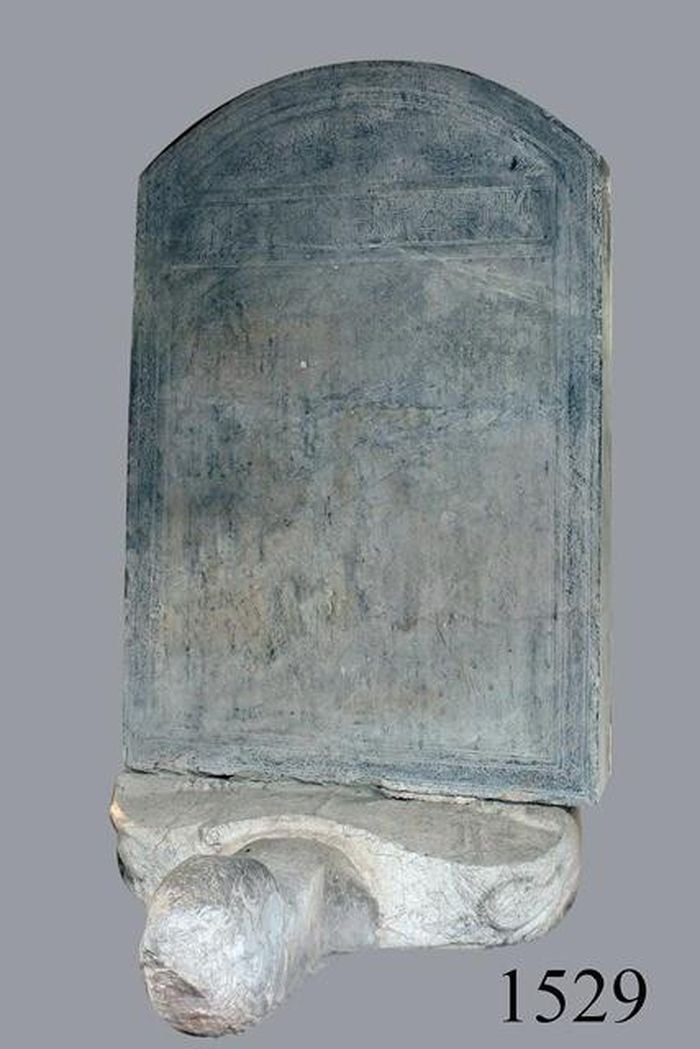
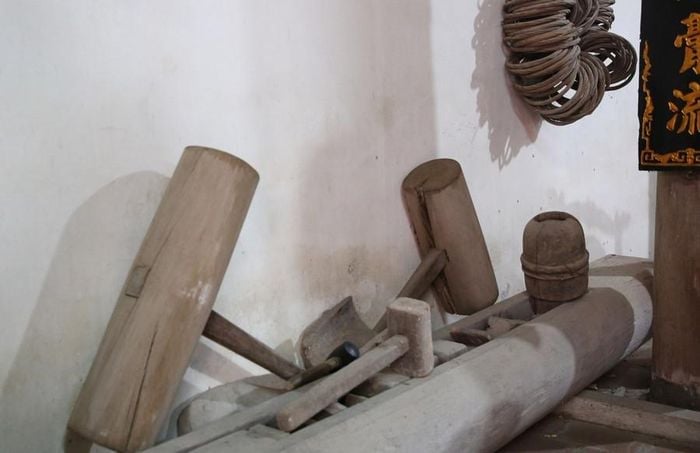
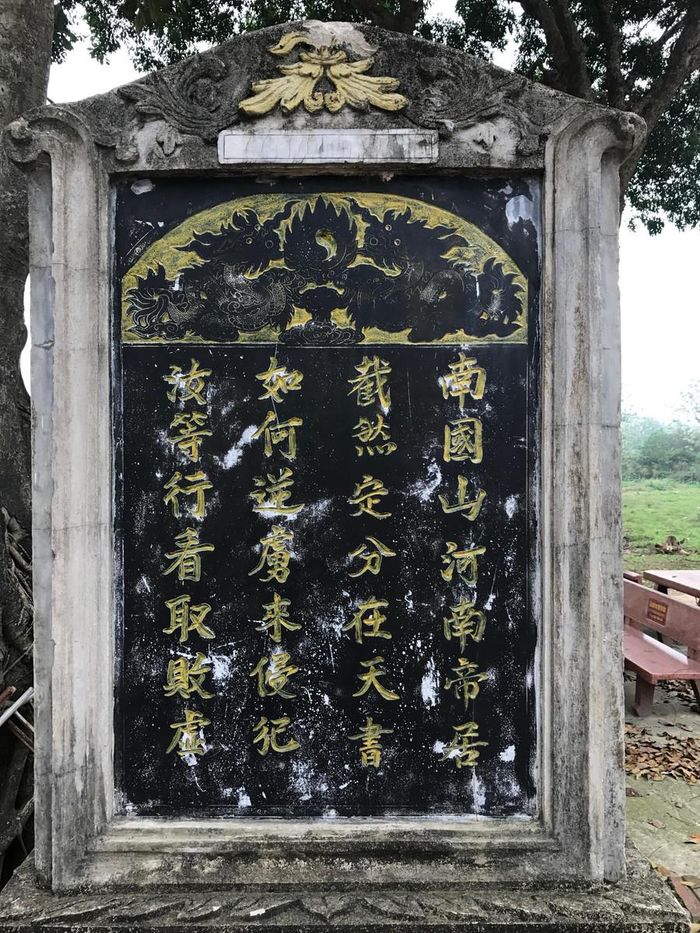
![[Photo] Vietnam shines at Paris International Fair 2025 with cultural and culinary colors](https://vstatic.vietnam.vn/vietnam/resource/IMAGE/2025/5/4/74b16c2a197a42eb97597414009d4eb8)
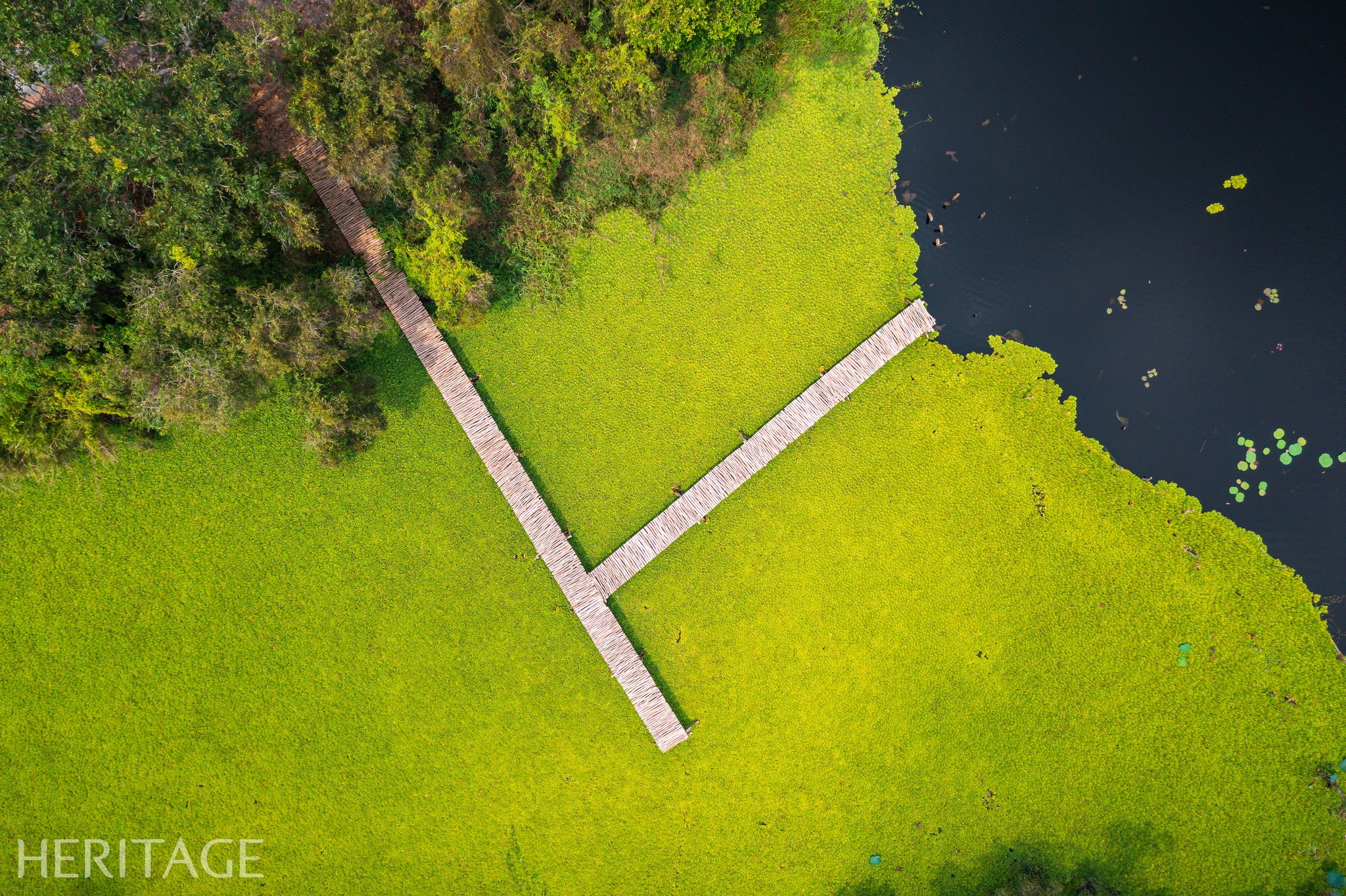

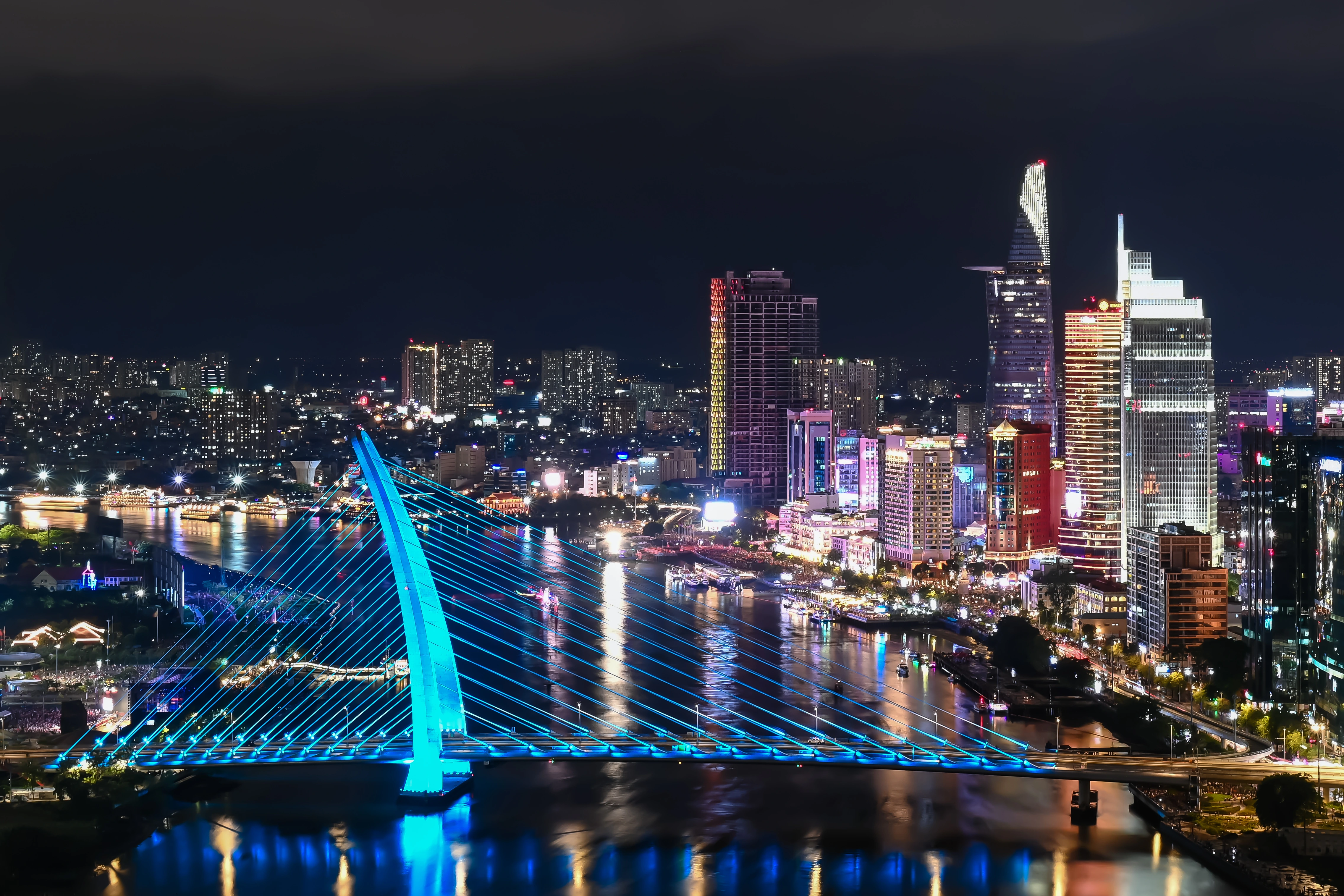
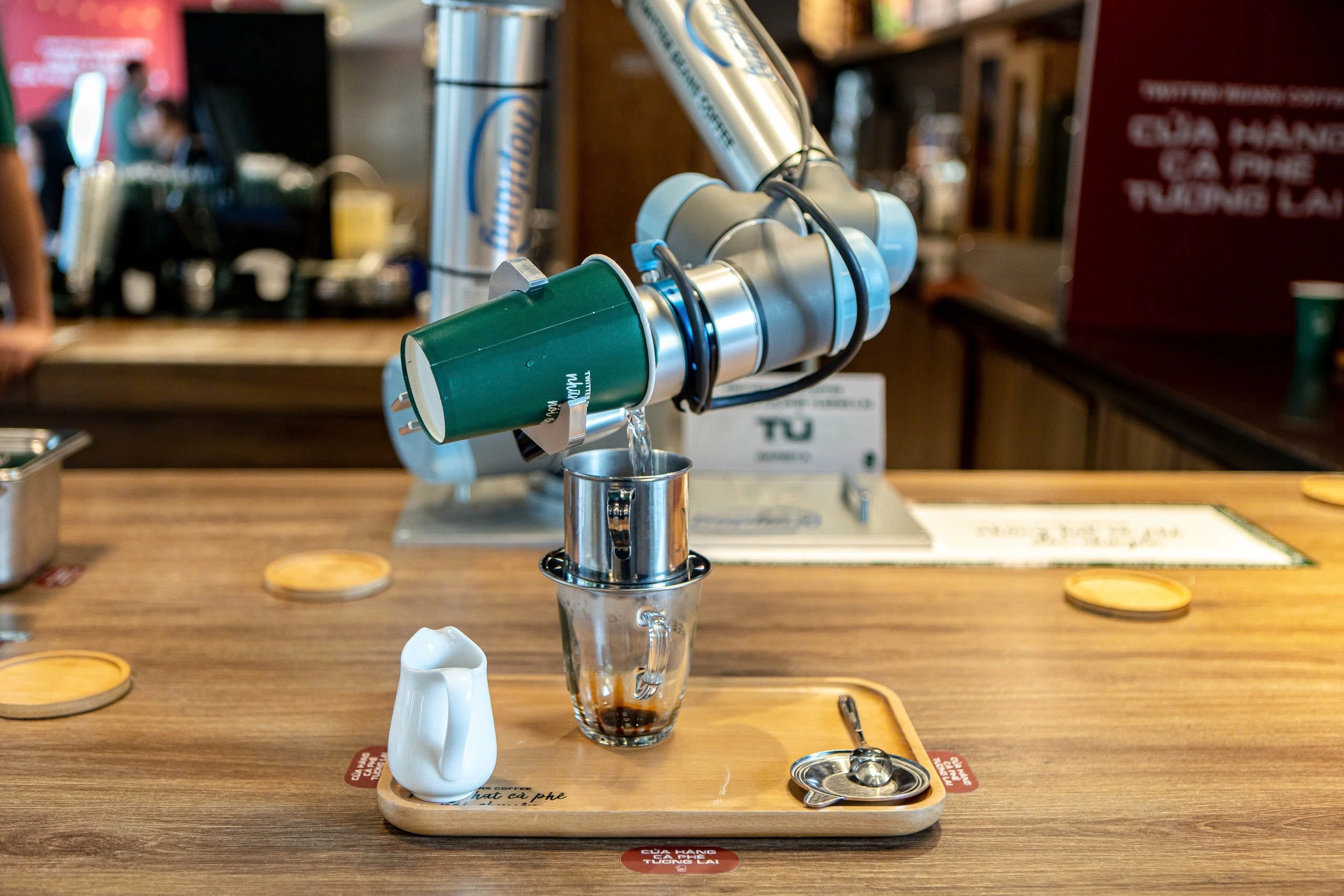
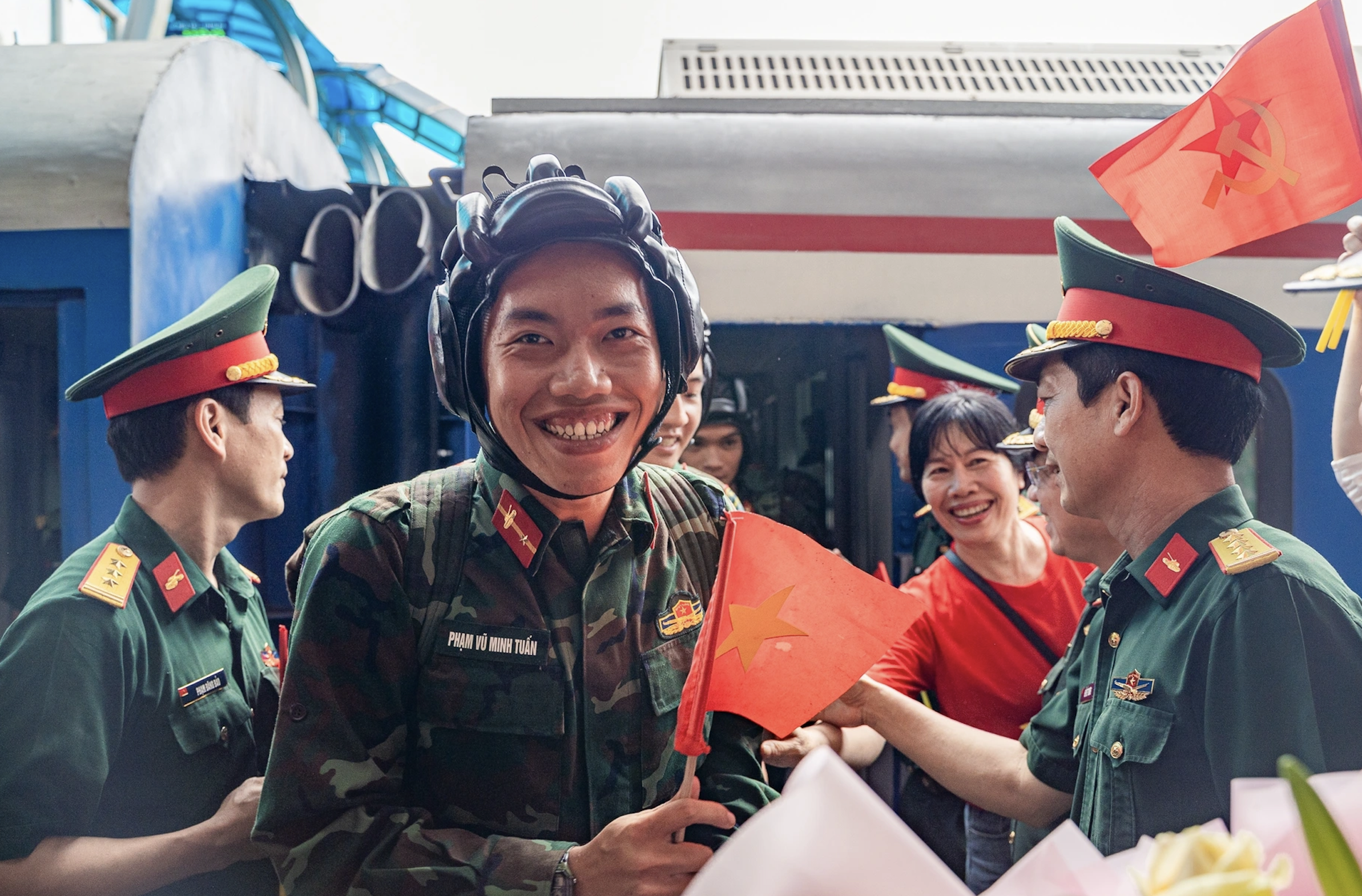
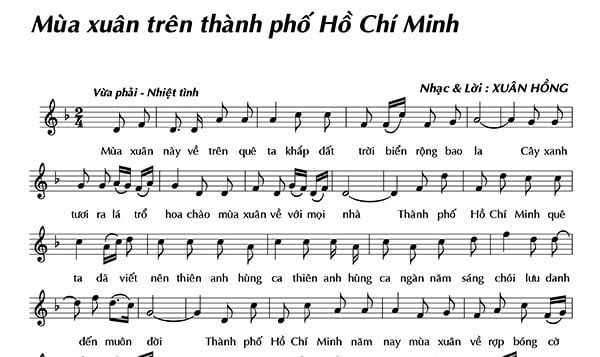
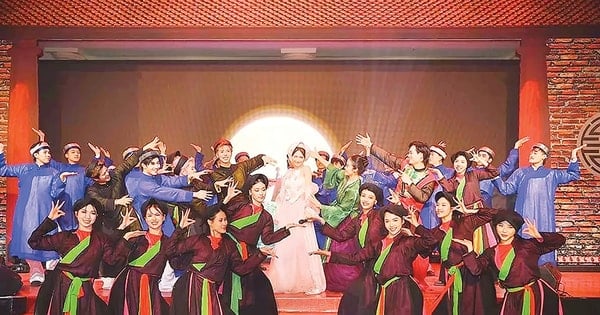
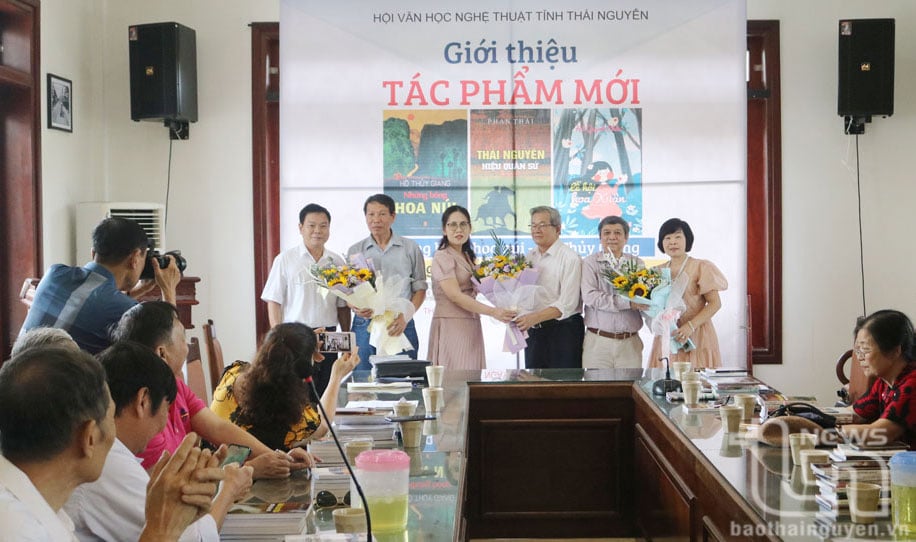
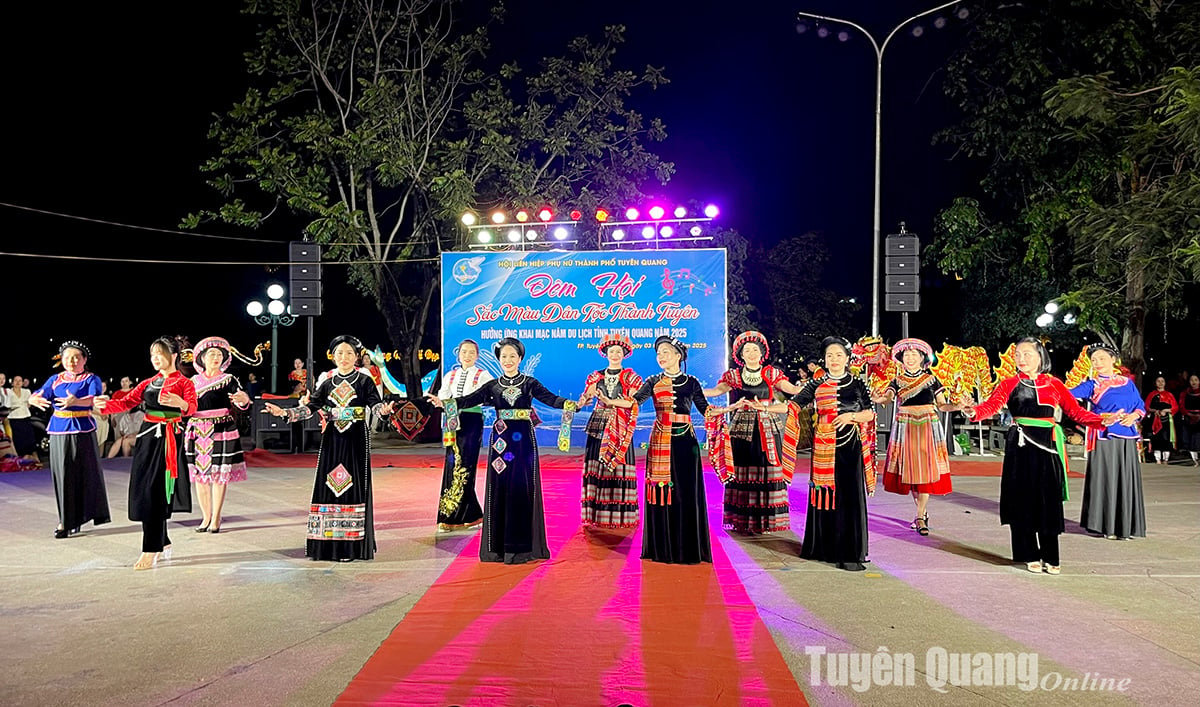

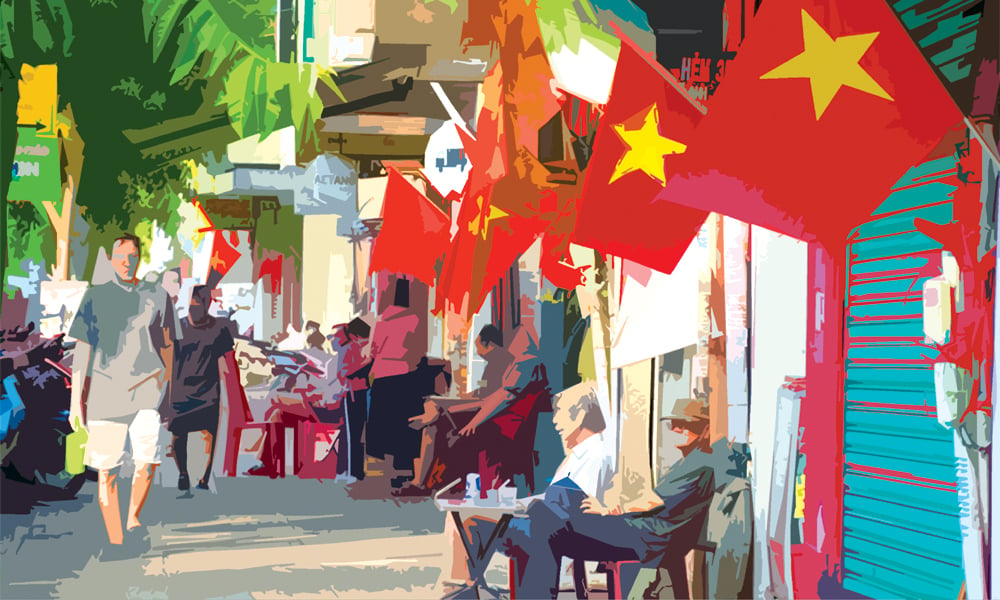
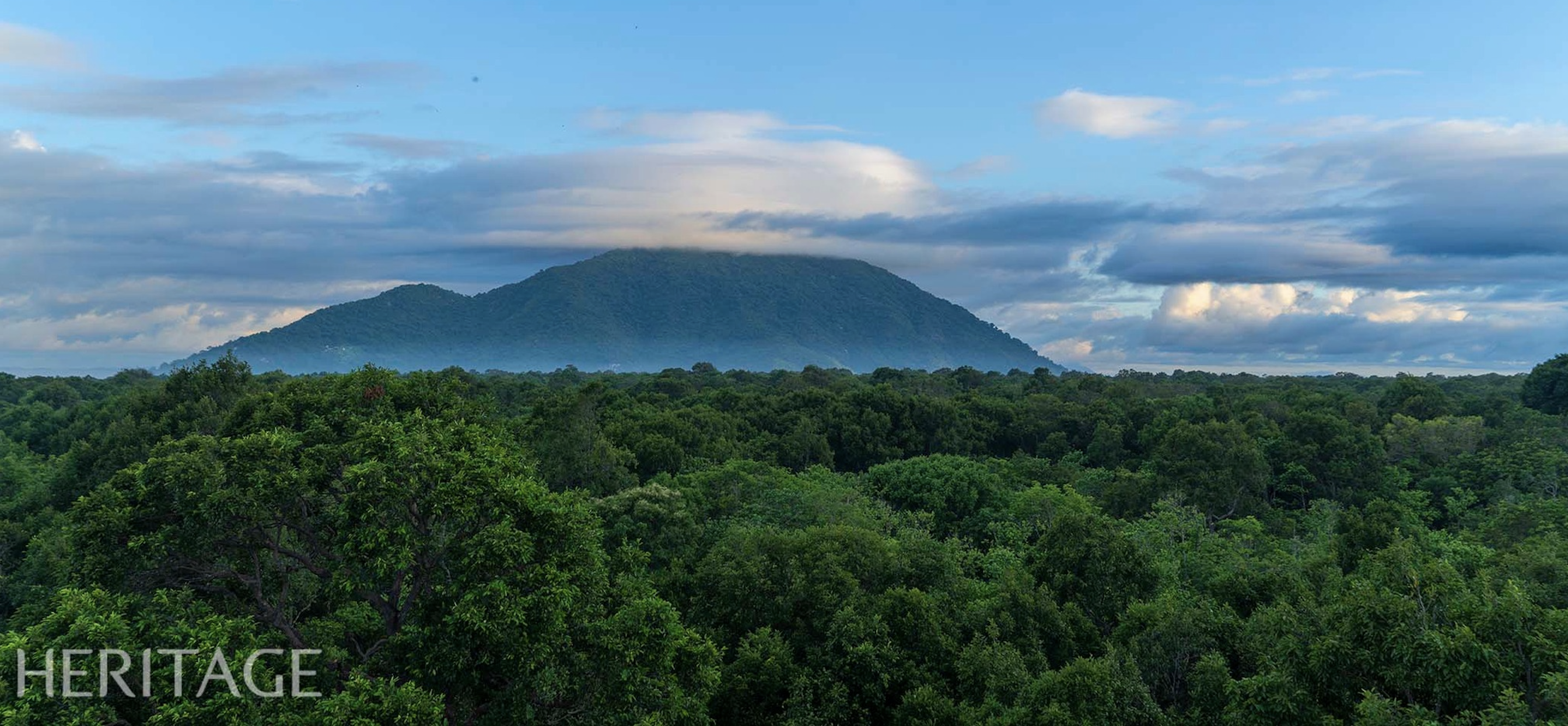



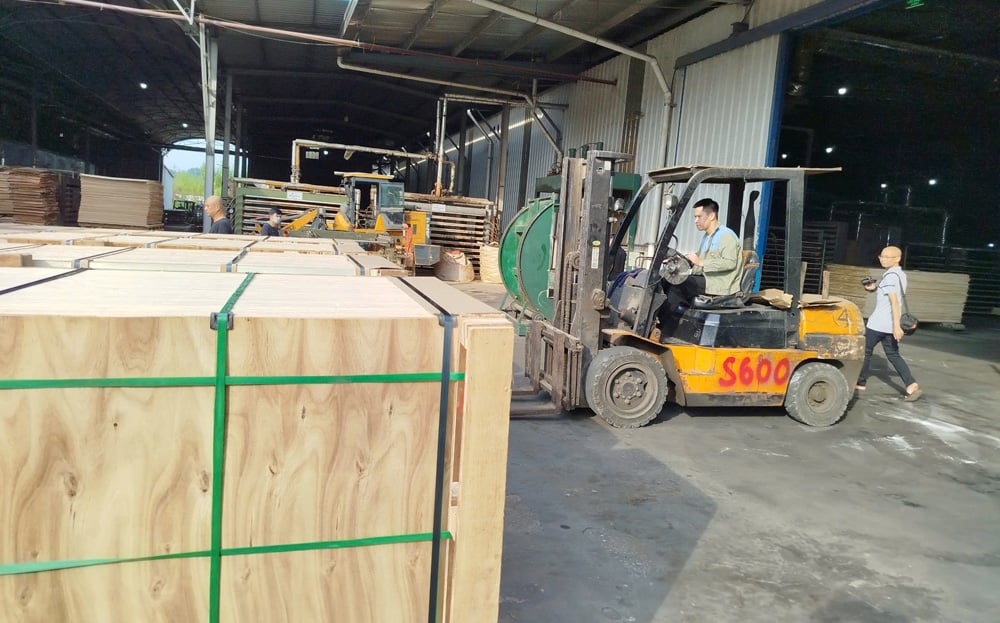
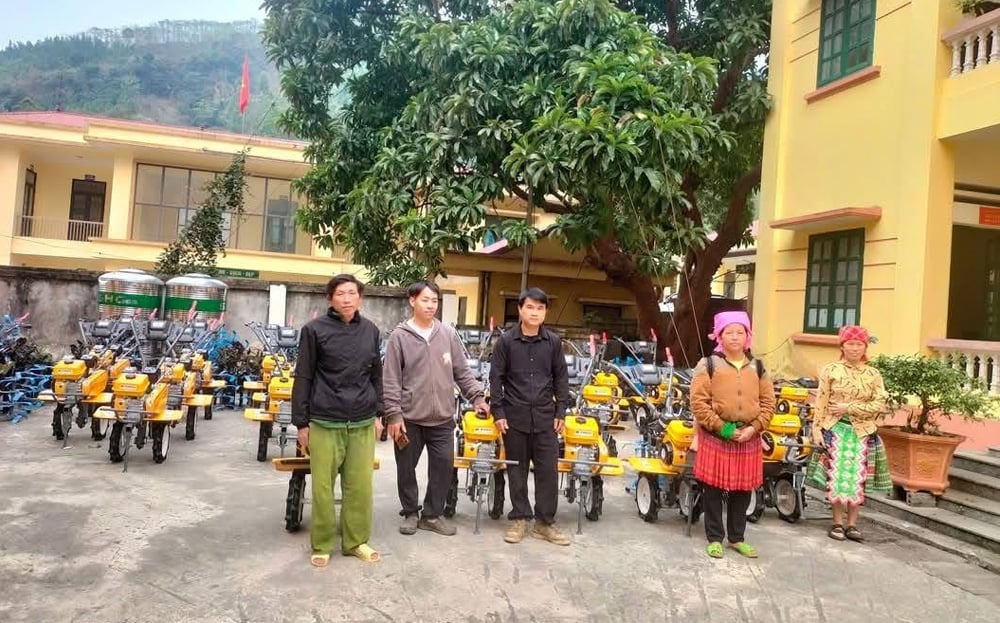
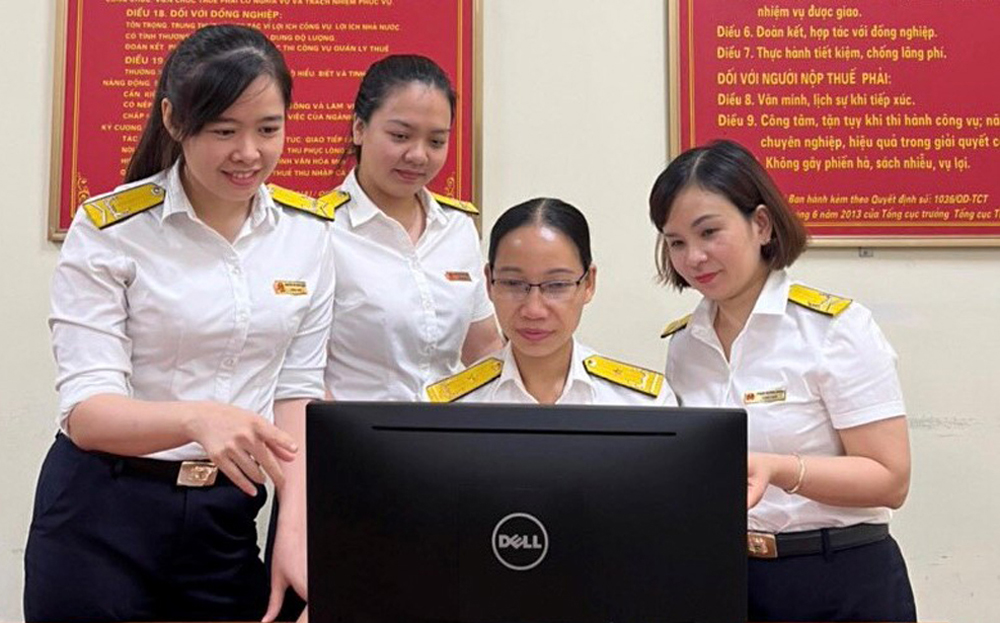
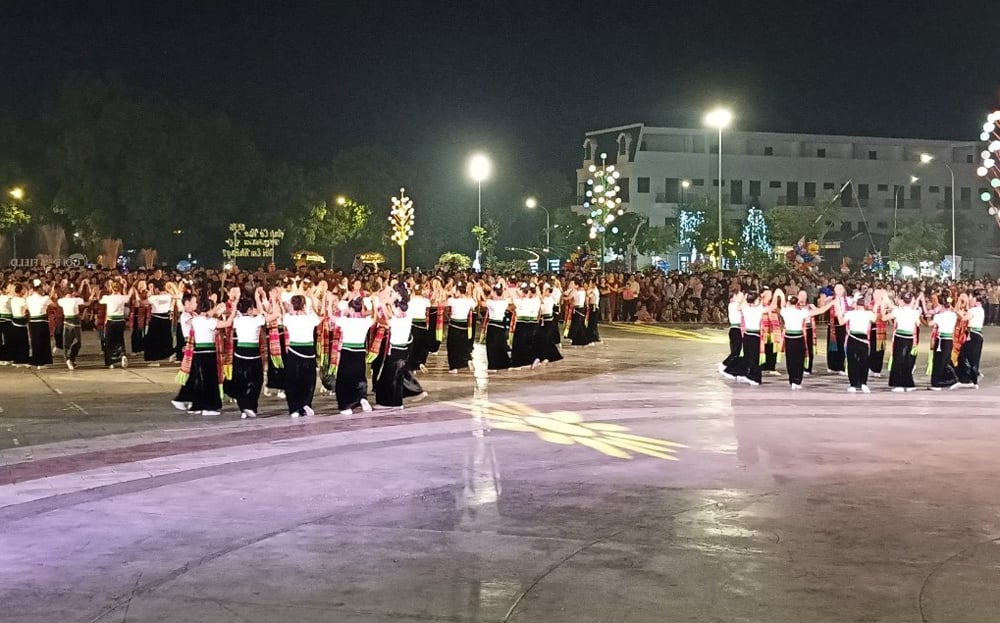
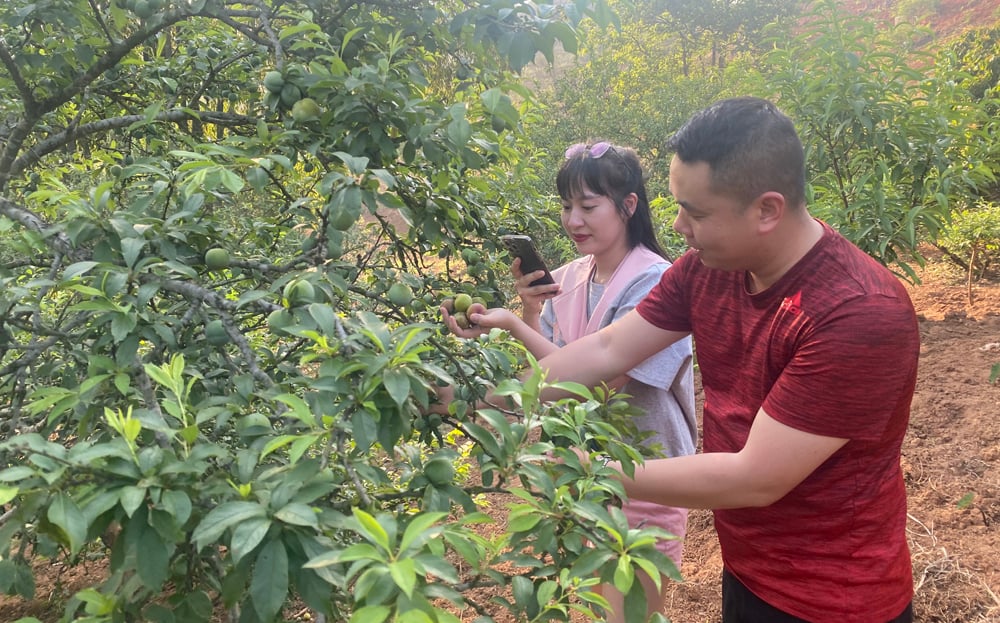
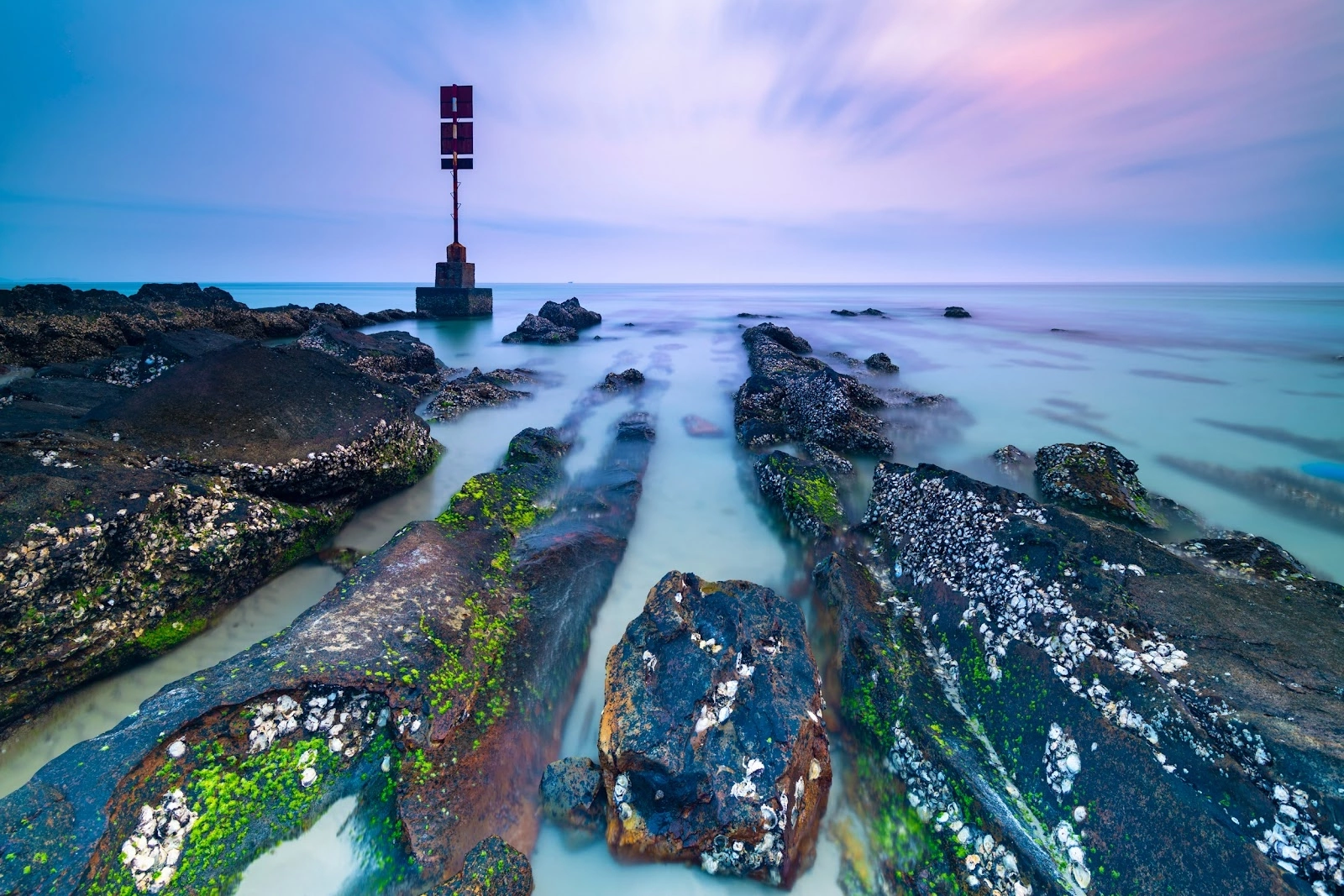
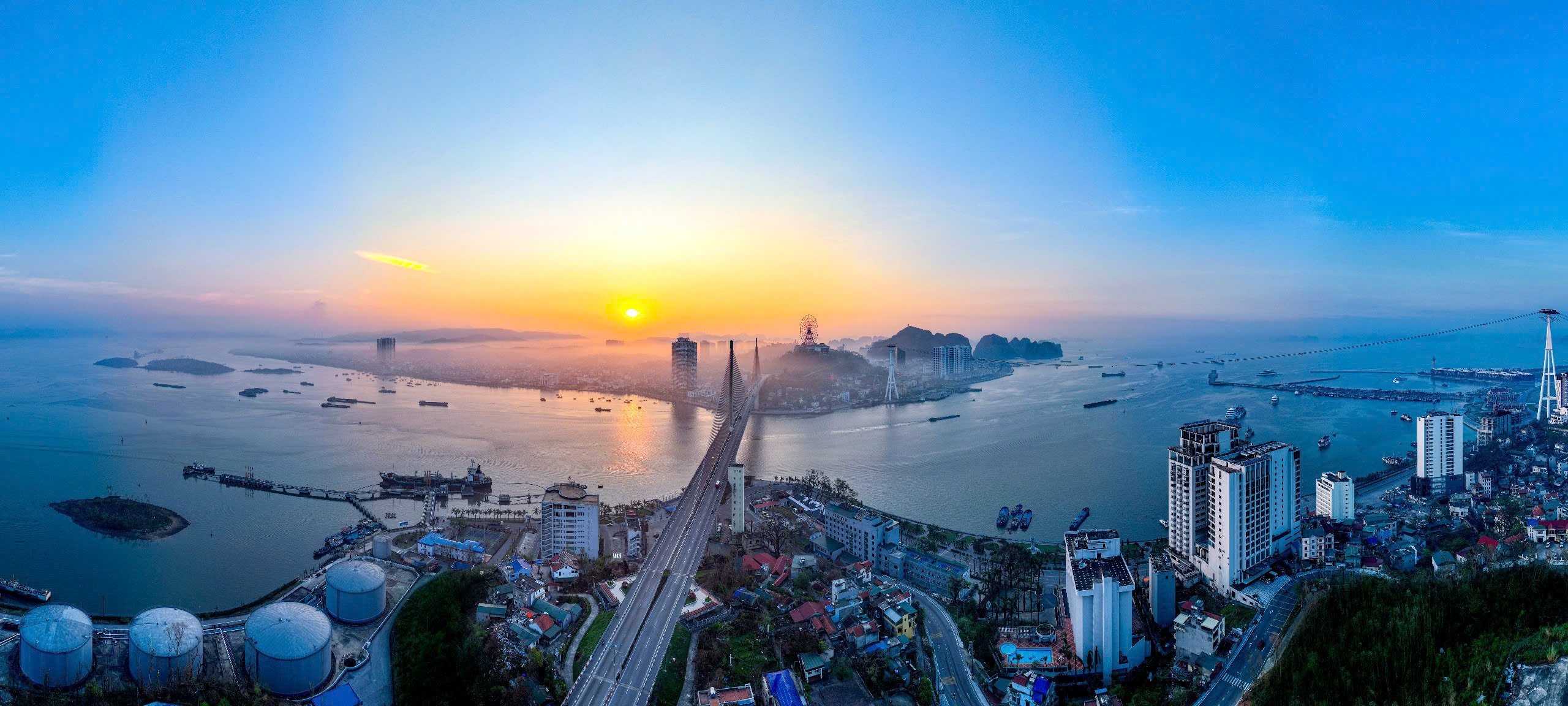
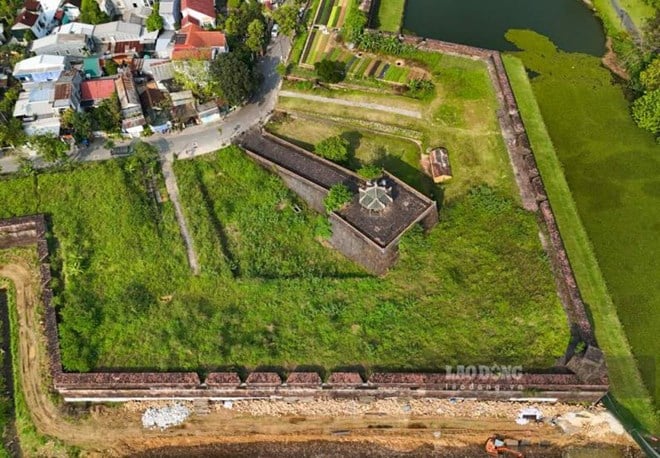

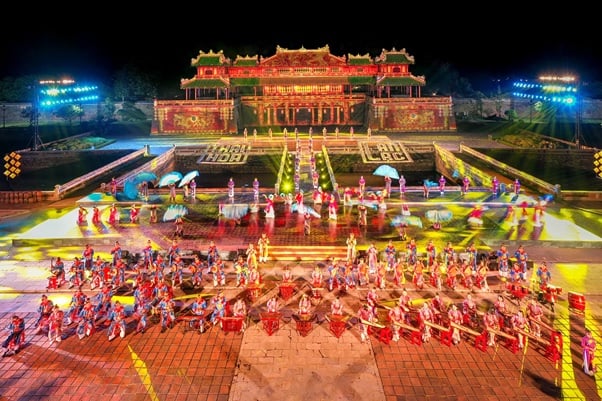


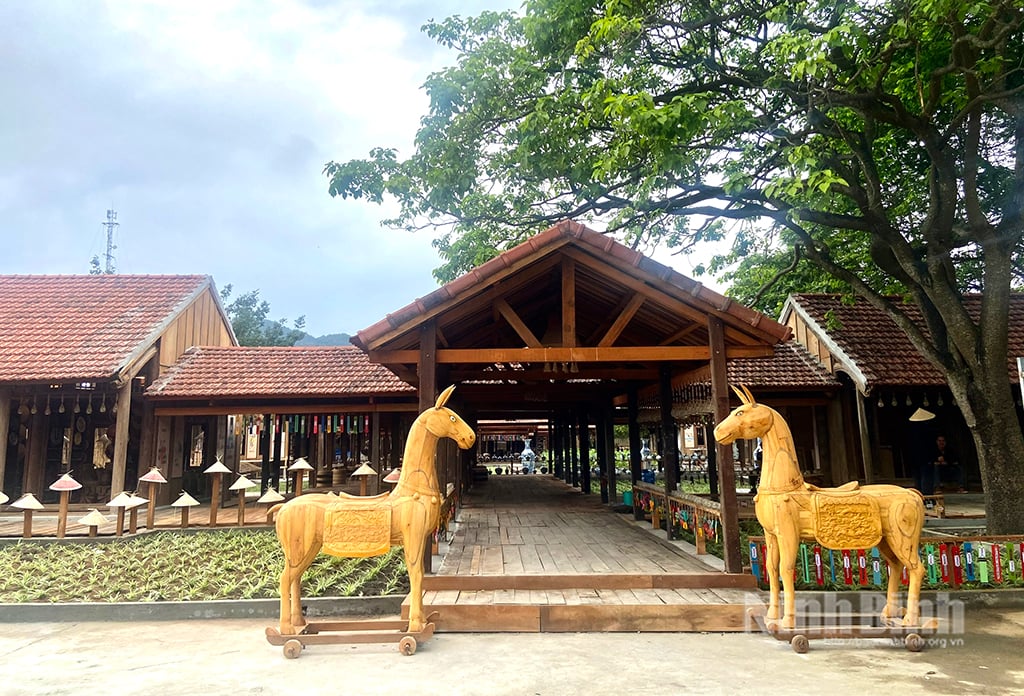

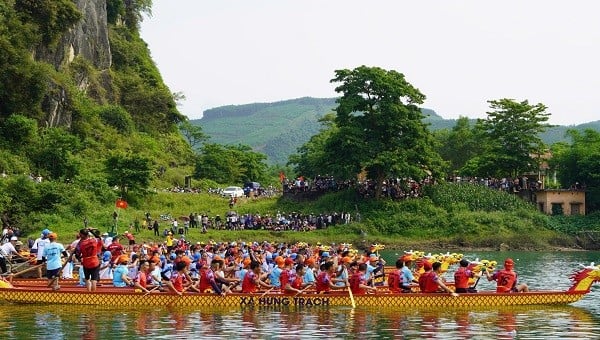

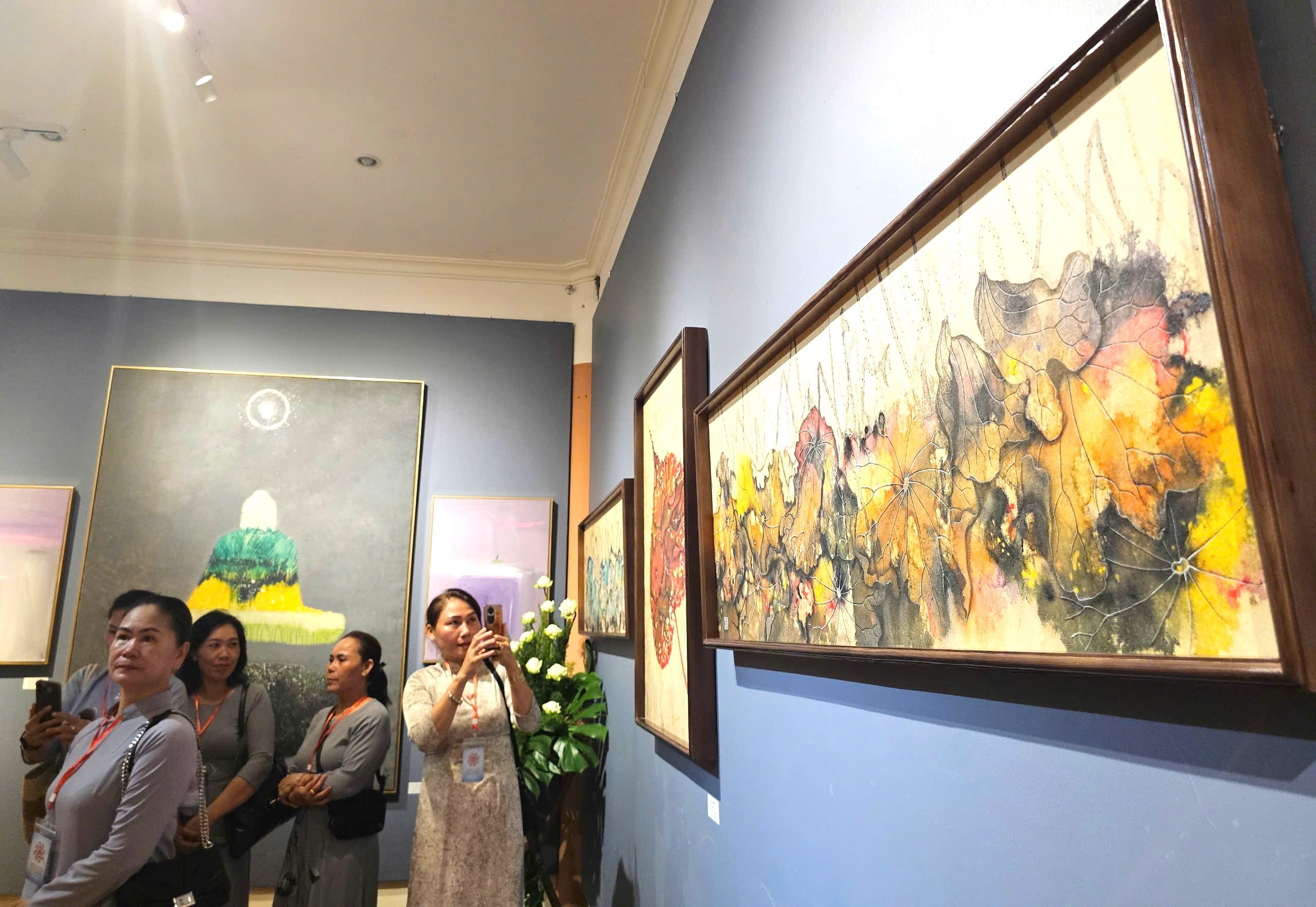

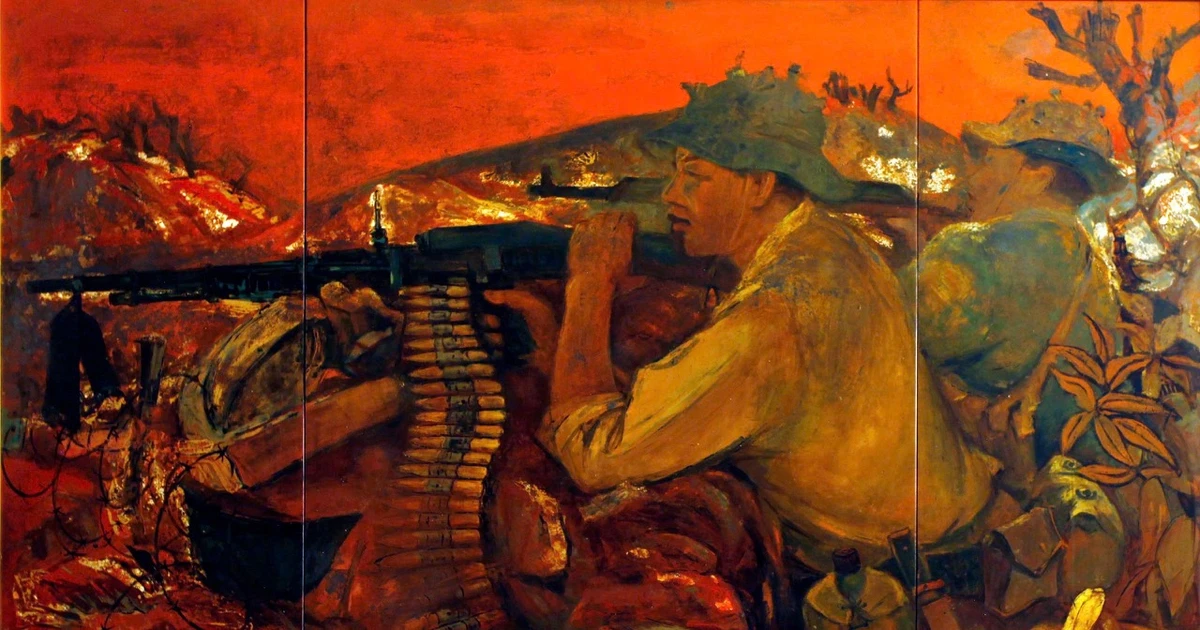

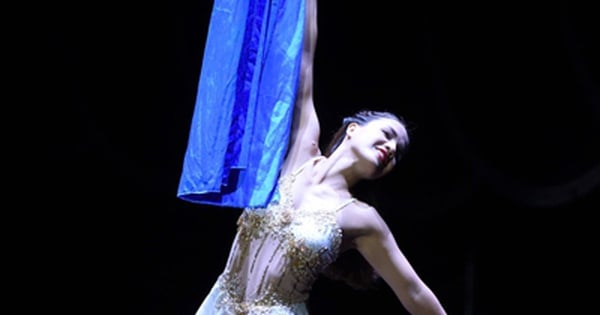

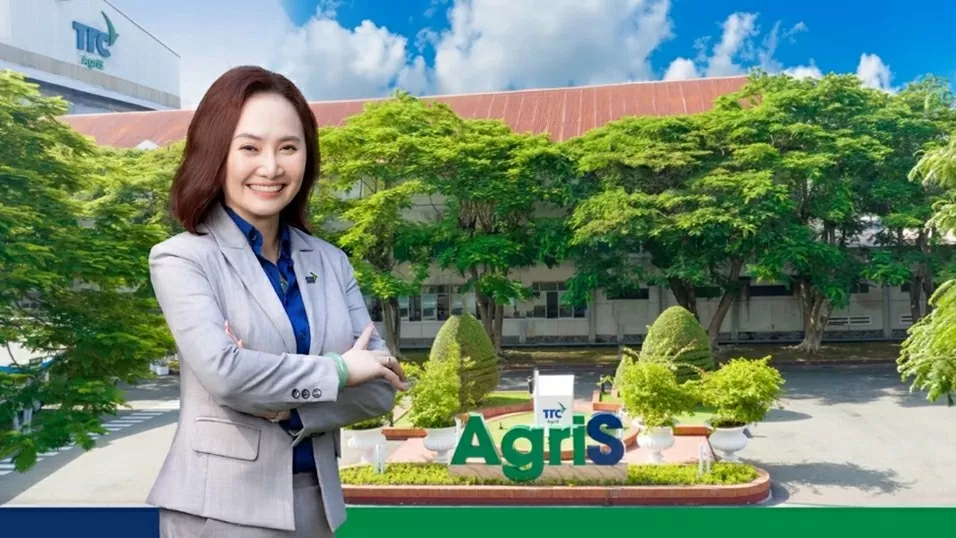

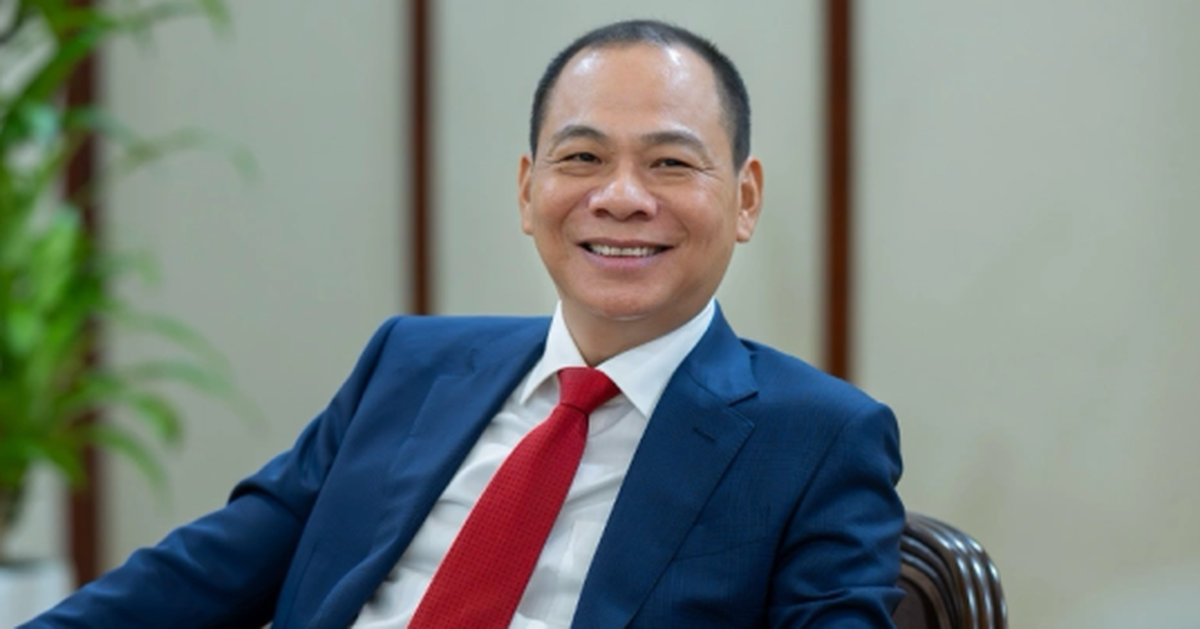

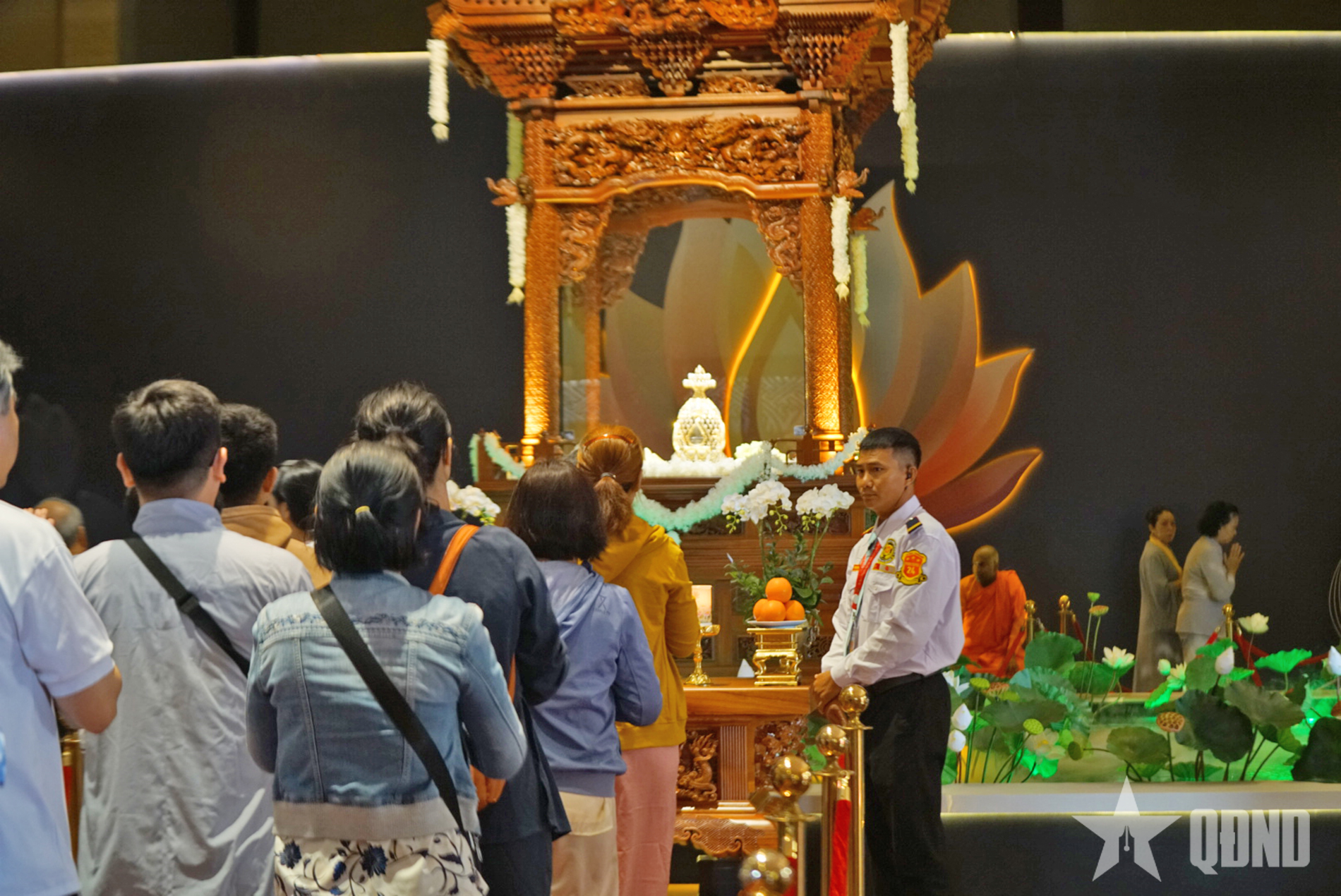

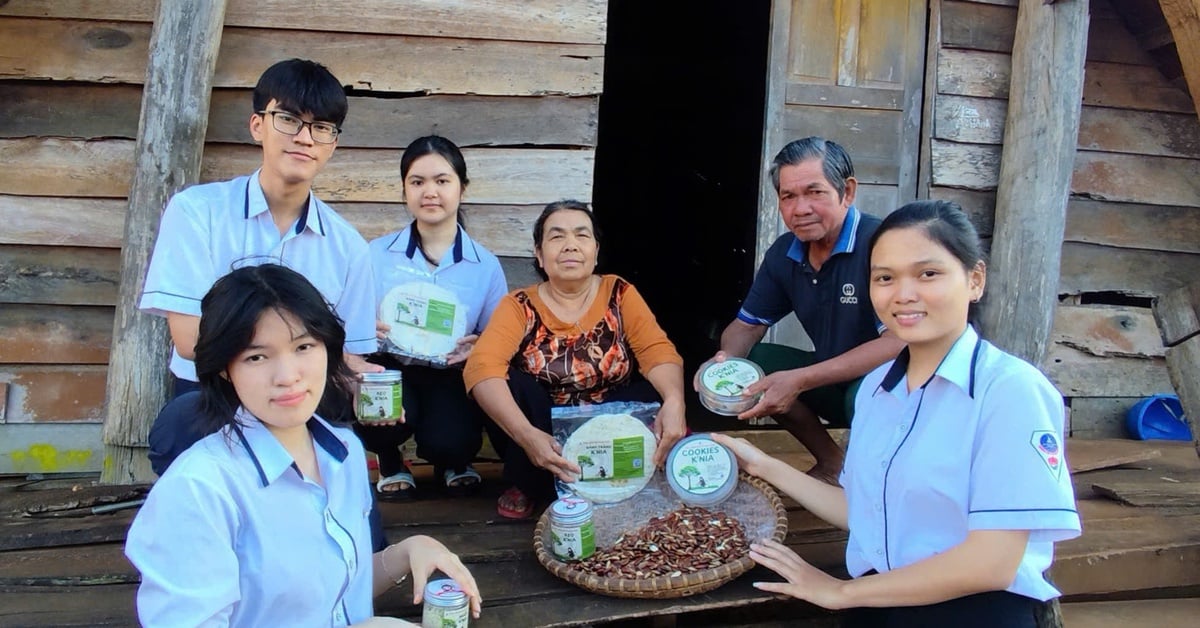







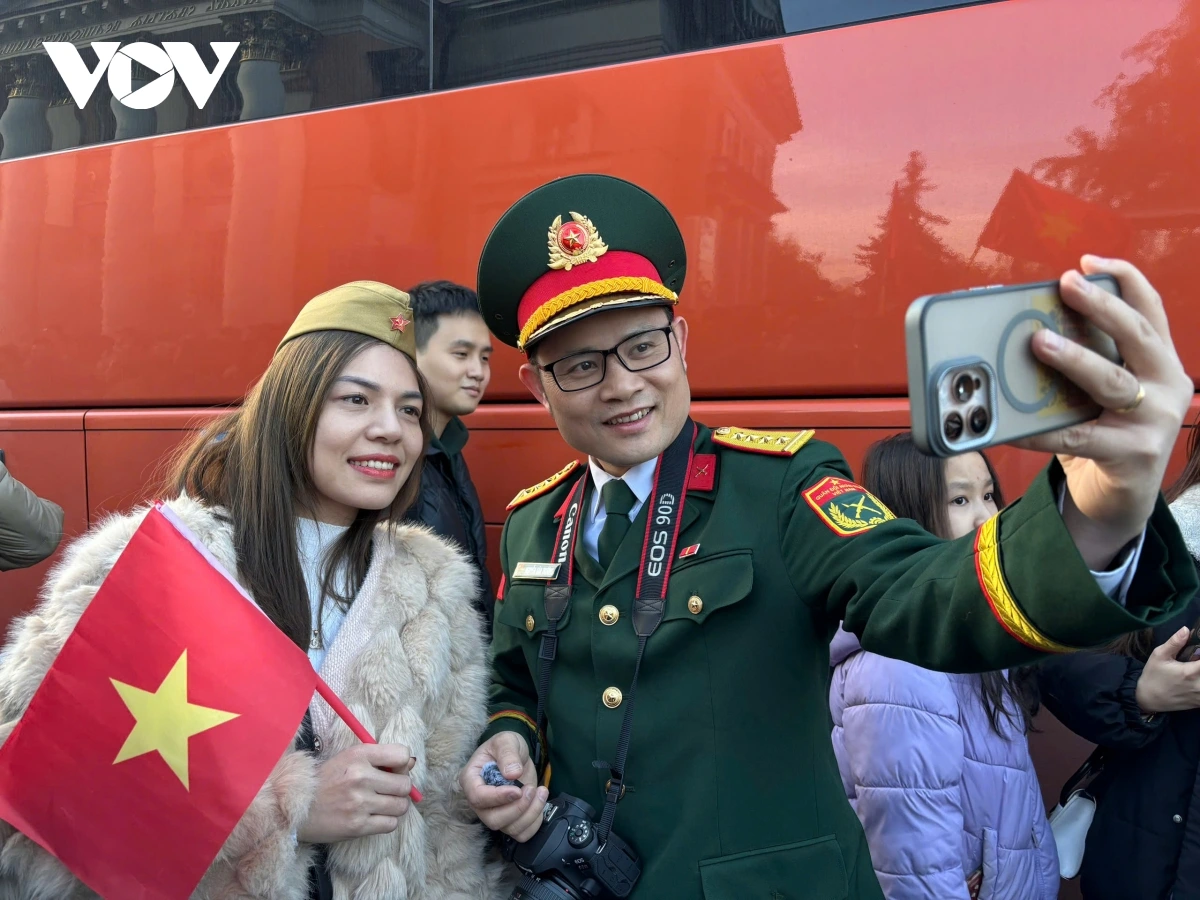


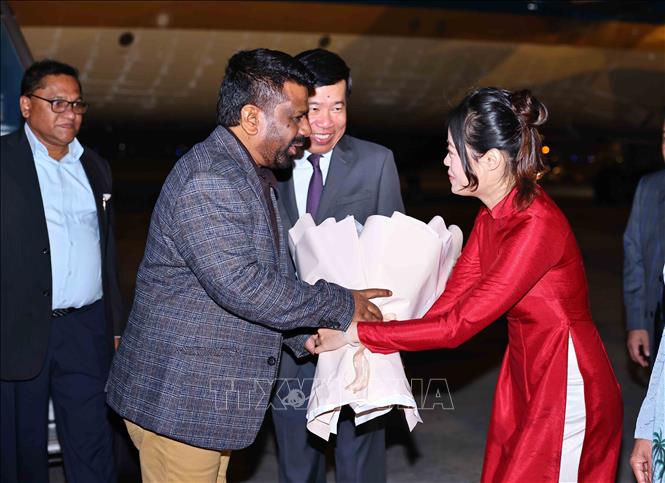

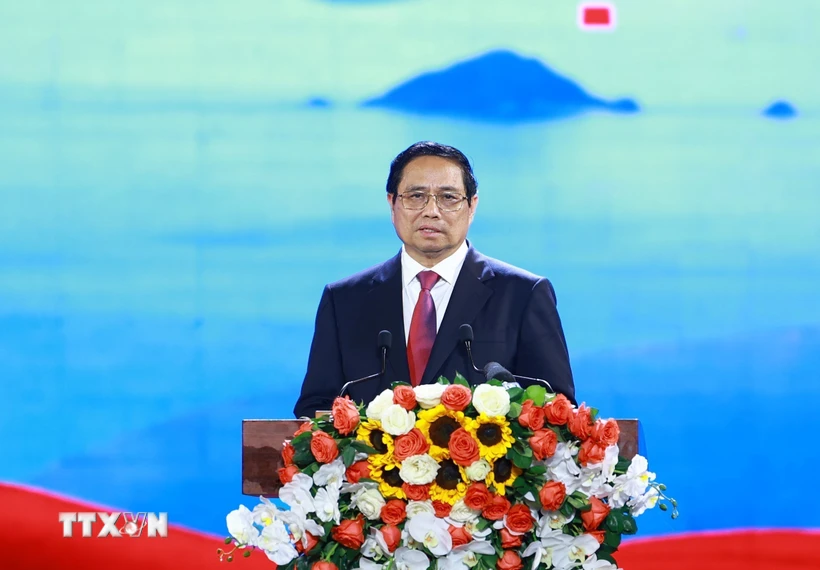

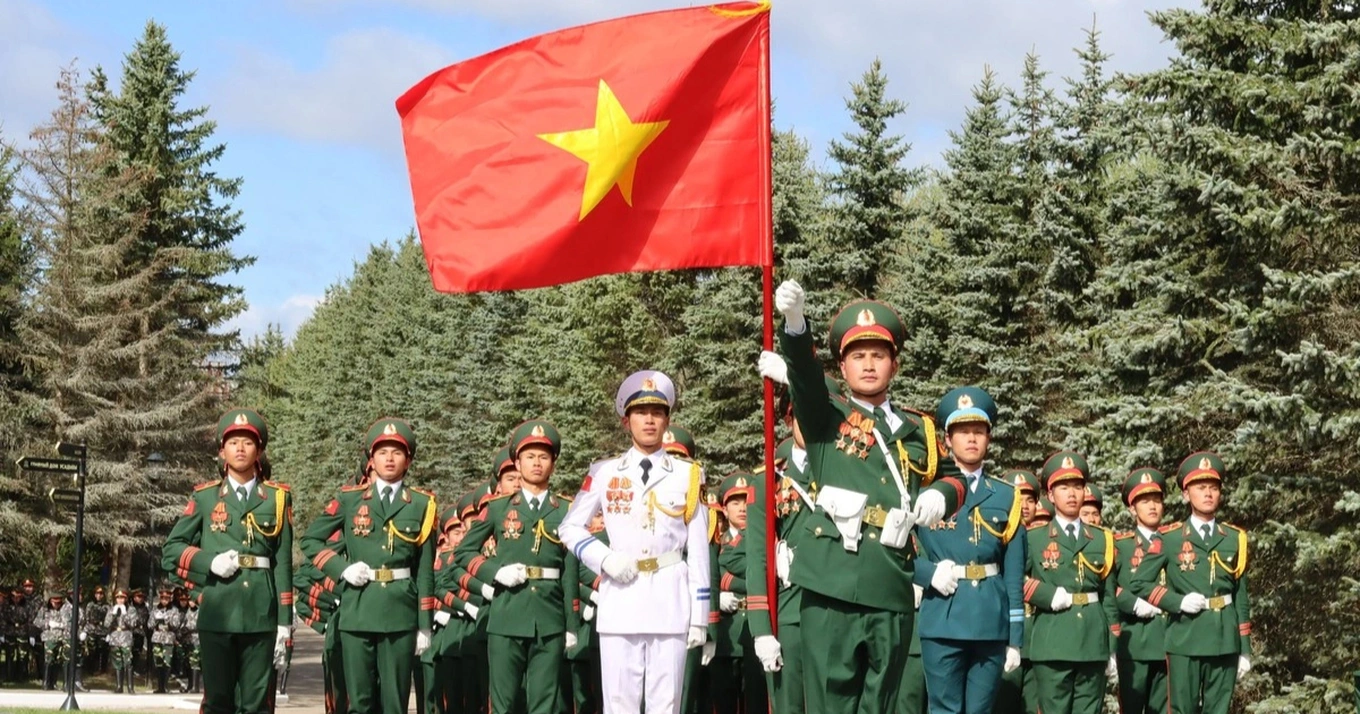

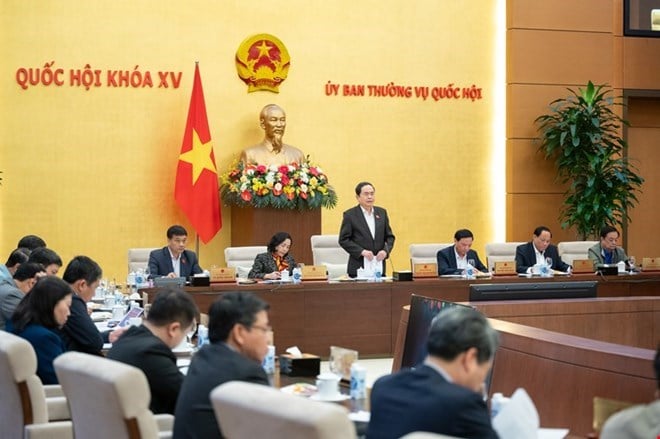





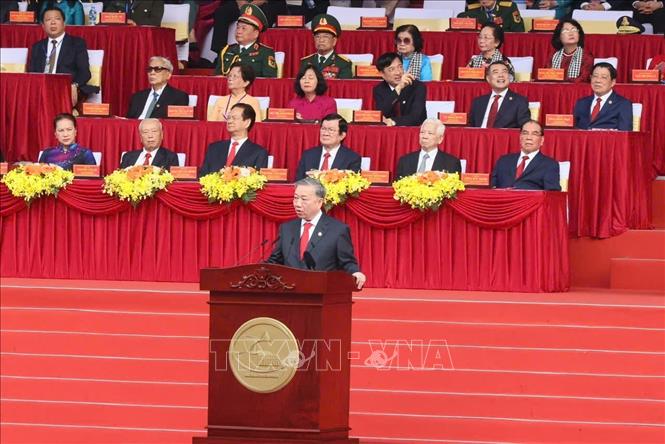




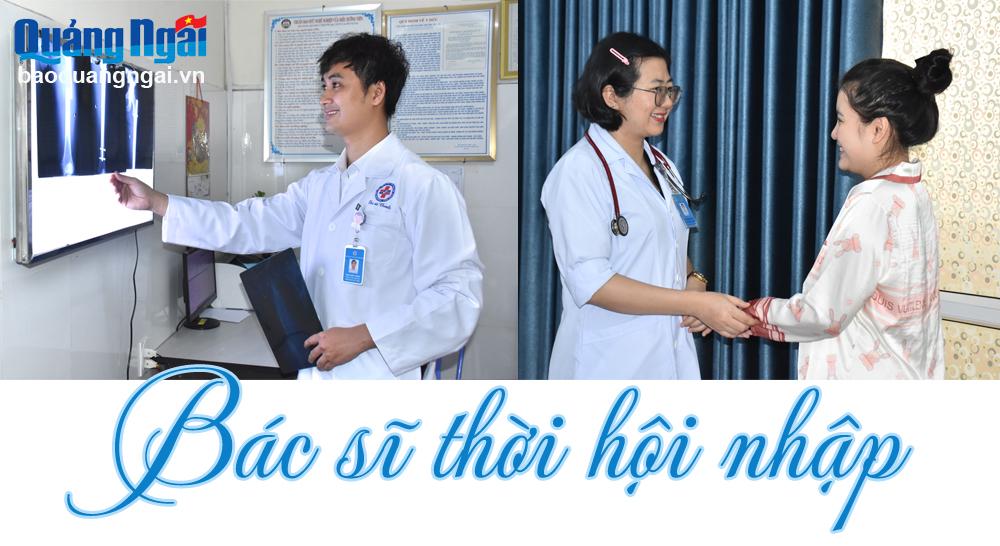

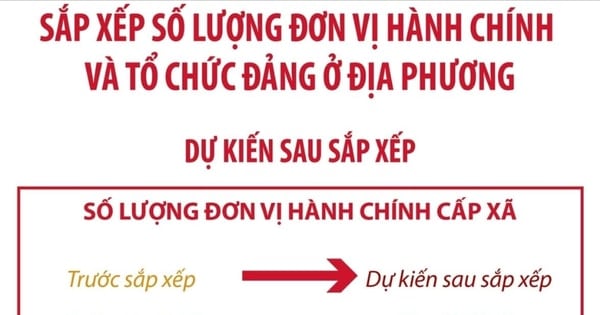

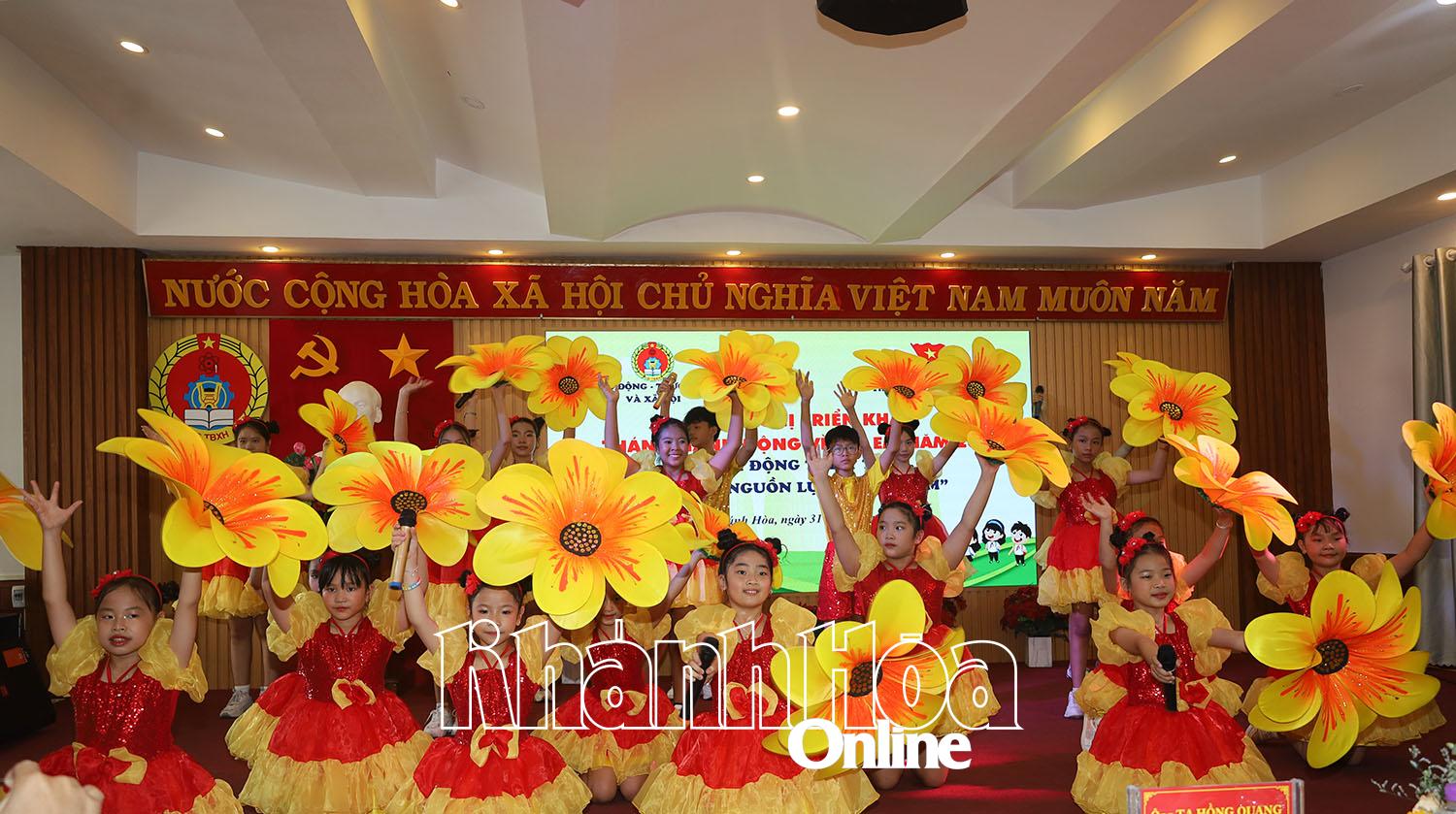

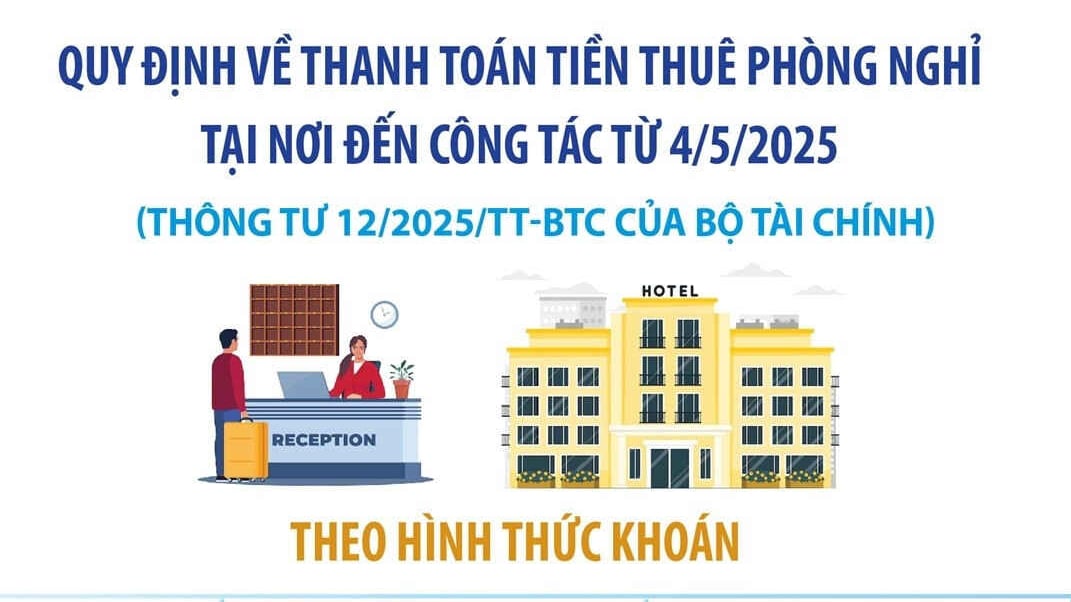

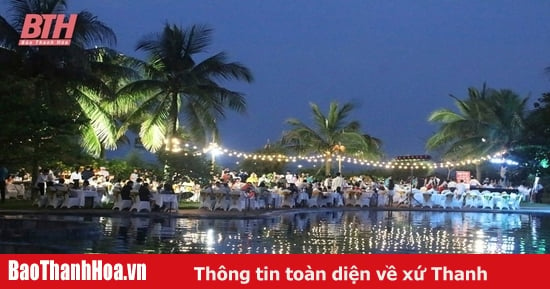



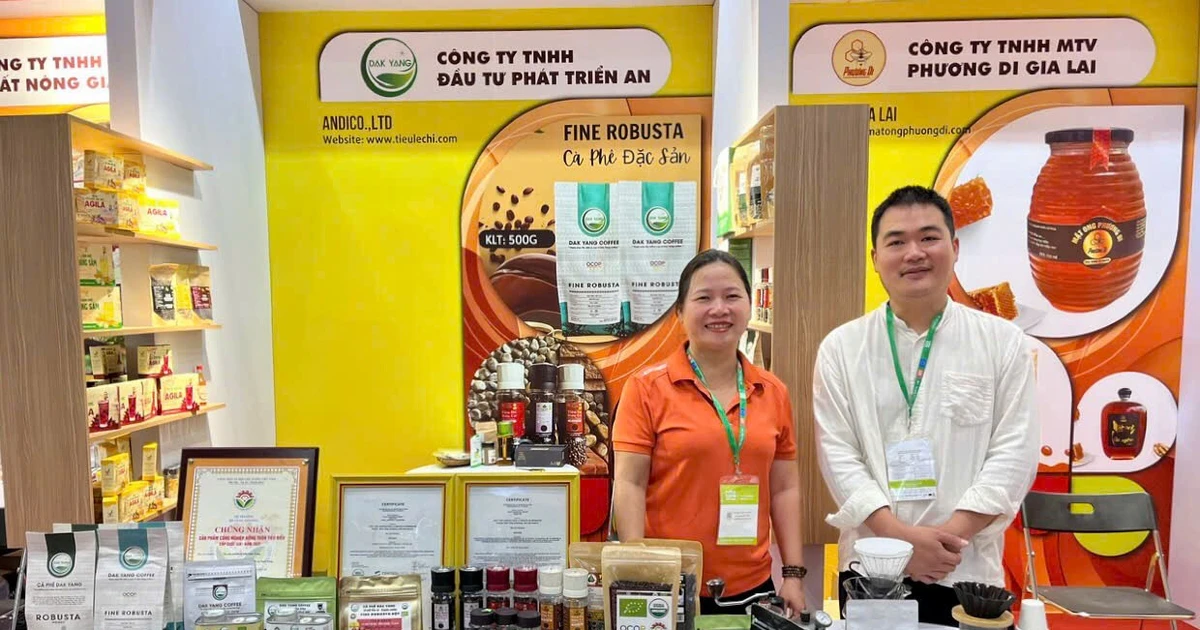

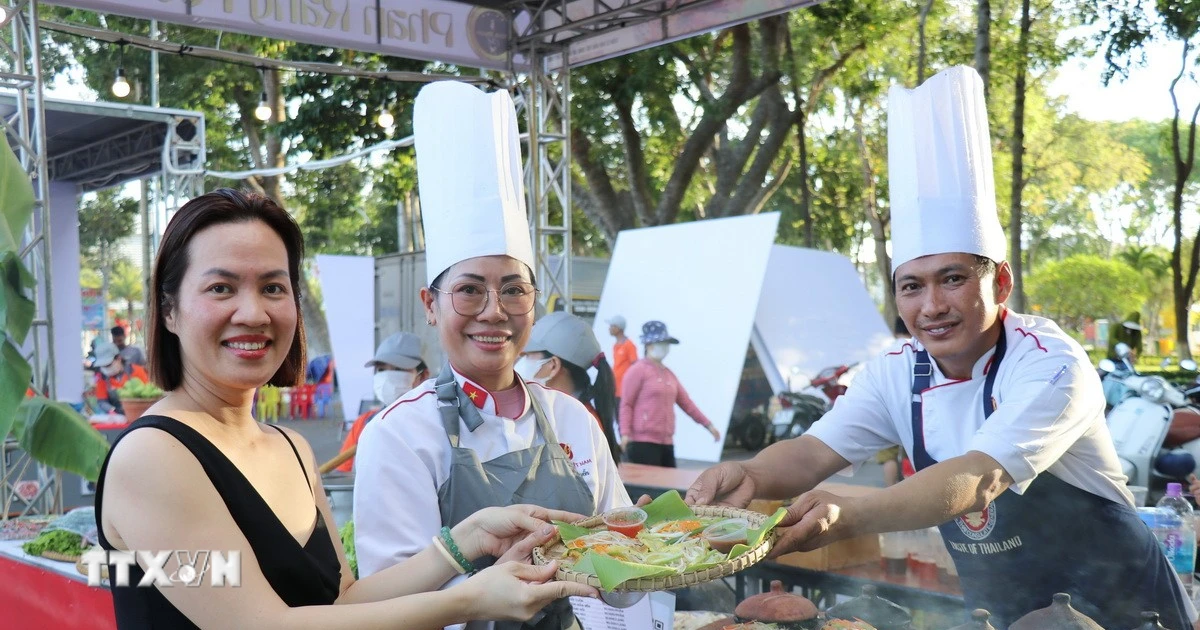



Comment (0)